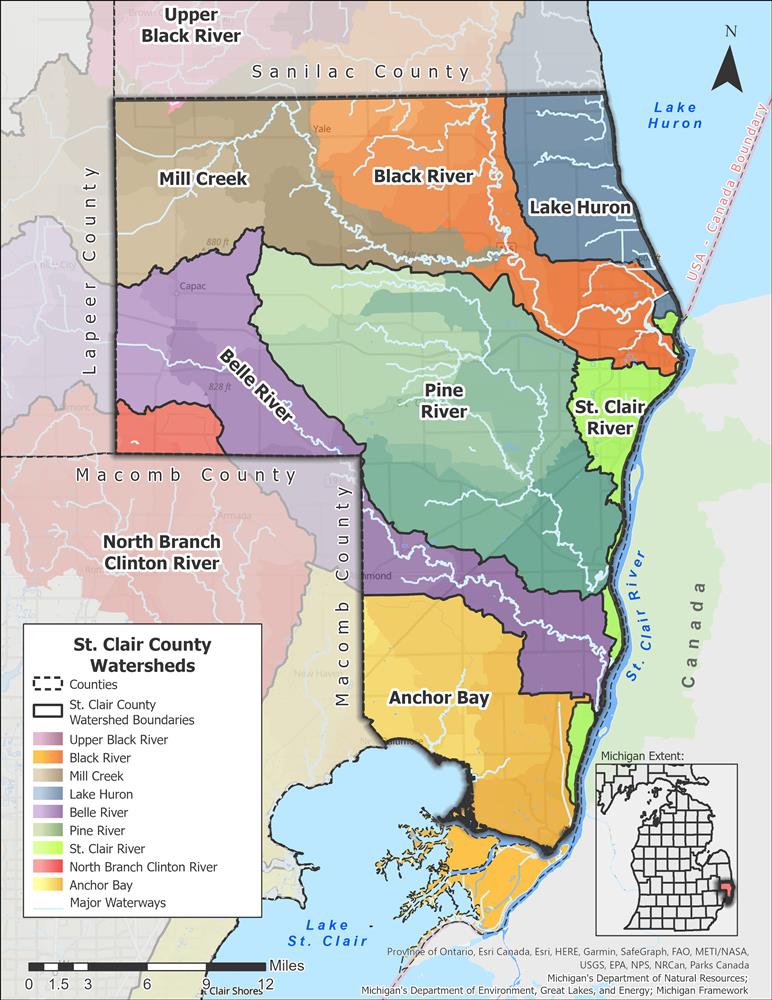Watersheds
Watersheds

Find where you live or work on the map. The watersheds are color coded and named for the body of water to where all the land drains. St. Clair County is divided into seven different watersheds. Which watershed do you live or work in?
The condition of our rivers varies dramatically from over-fertilization in residential areas to failing septic systems in rural areas to runoff from development in suburban areas and to erosion in agricultural areas. Where does water go when it leaves your property? Is there anything that could wash off your property that you wouldn't want in a stream or lake? Remember only rain in the drain!
When it rains, water rushes off impervious surfaces like roads, parking lots and driveways. In St. Clair County, or heavy clay soils and tiled farm fields also act like concrete shedding water at rapid rates. All this runoff is called storm water. Storm water picks up pollution in it's path like cigarette butts, pet waste, pesticides, automotive oil, and fertilizers. These pollutants are conveyed through our county drain, road ditch and storm drain systems to end up directly in our rivers. This polluted storm water is harmful for activities like fishing, boating, swimming and drinking.
The U.S. EPA mandates that St. Clair County and twelve of
our communities work together to outline the actions we must take to meet the regulations and improve the quality of our rivers, lakes and streams. This is called Watershed Planning, which brings together residents within the watershed to address water quality issues, regardless of political boundaries.
You can help!We want to hear your concerns and suggestions regarding water quality problems you see in and around your neighborhood and community. The best information we receive about water quality problems is from residents who live along a river, stream, creek, ditch or drain. Send your concerns directly to us. |
How willing are you help prevent pollution in your neighborhood?
Email Mollie Brown - Environmental Health Educator, (810) 987-5300 ext. 1486